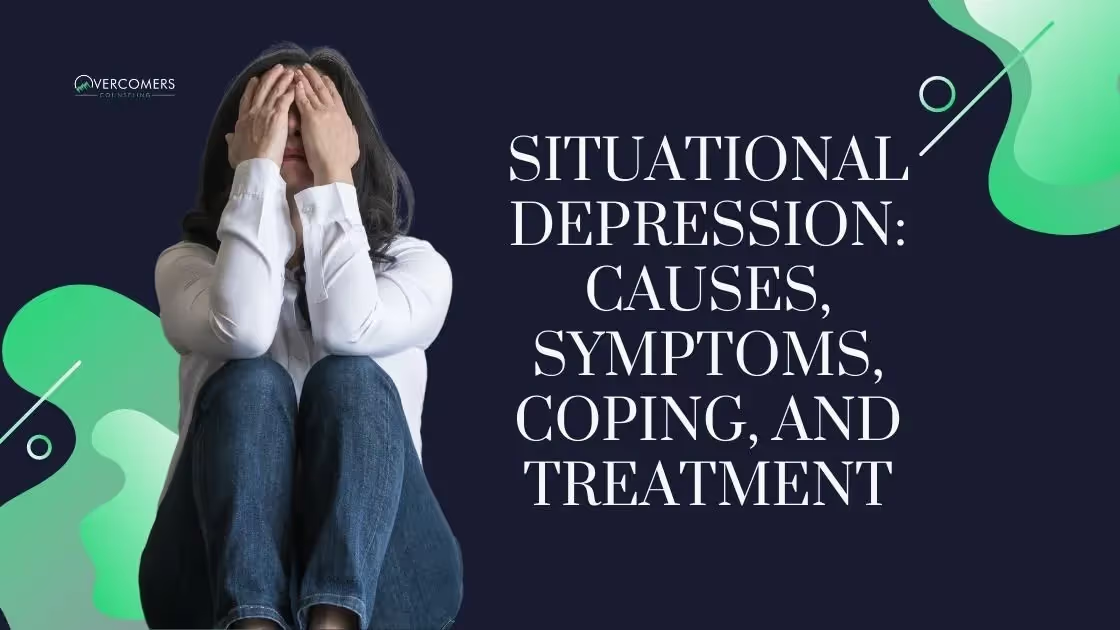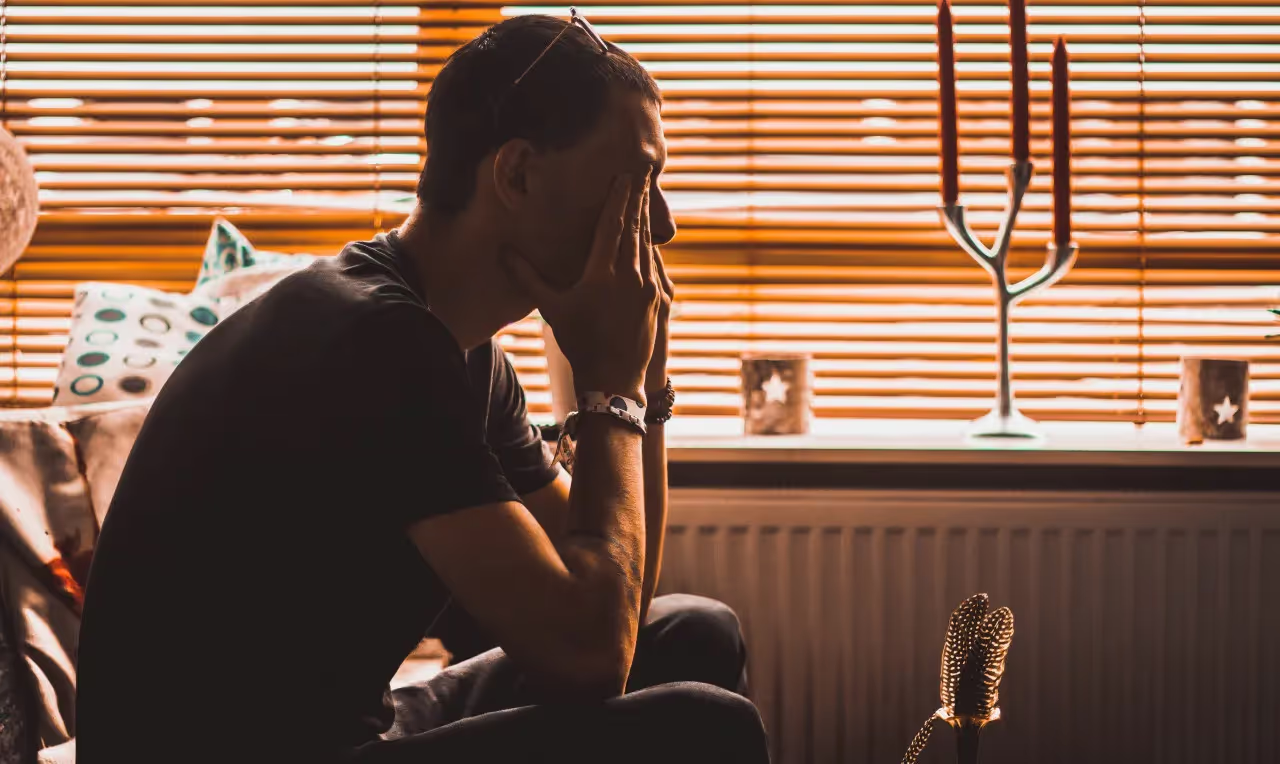What is Situational Depression?It is an informal term used to describe the experiencing of symptoms of depression following a highly stressful event.It is...

What is Situational Depression?It is an informal term used to describe the experiencing of symptoms of depression following a highly stressful event.It is not a clinical disorder and only resembles the symptoms of Clinical Depression, which is a mood disorder.
Although, in some instances, it may translate into an Adjustment Disorder with a depressed mood.It is short-term, related to stress, and often developed after exposure to stressful events.
It is also sometimes known as reactive depression.
There could be many factors at play for situational depression.
One of the primary reasons for situational depression is that the person feels so overwhelmed that the perception is that there is complete exhaustion of one's coping abilities.

Clinical Depression is a mood disorder that may not always happen with a specific stressor.
It is more severe in nature and lasts longer than what is situational depression associated with.Thus, differentiating between what is situational depression and clinical depression requires one to look at the onset, precedence of an event, and the duration and severity of the shift in mood.Situational depression begins within 90 days of the stress-inducing event and lasts for less than 6 months.
Clinical Depression is marked by a triad of hopelessness, helplessness, and worthlessness that stays constant with a low mood for more than 2 weeks and with minimal to no improvement without professional intervention.
Clinical Depression lasts longer than situation depression, especially without any intervention.
Now that we understand what is situational depression, let us examine the causes related to situational depression.
There are many life events that may lead to situational depression.
These events could be traumatic in nature, others could be events that involve major changes in life, whether happy or sad.Although there are some life changes we all go through, there are times when our resources and capacities seem limited in front of the change.
It could be that your support system is in another city, or your self-care is completely disrupted because of excessive stress at work.
Some examples of events are:
There is a possibility that you may be at risk of experiencing situational depression if you have:

After understanding what situational depression and its causes are, one needs to look out for the symptoms.
Whether we experience them ourselves or see them in our loved ones, it becomes difficult to assess where the help needs to come from without having a checklist or blueprint of sorts.
So, what is it that one needs to look out for?
Since situational depression is usually related to a very stressful event, there are a few lifestyle changes that one can benefit from.
Although it may sound fundamental, eating the rainbow is essential for our body to get the energy to fight stress.
Following a stressful event, there is a break in our normal routine of everyday life. Coming back to small practices that are easy to follow is helpful to come back to that rhythm.
Exercise may sound too much when you feel overwhelmed and hopeless. However, simple stretches to take care of yourself help the body and mind whenever possible.
Although your experience may feel very isolating, many of us go through situational depression following similar life challenges. Finding such a group will help you make sense of your experience as you journey with others and feel the warmth of a community.
Although they may sound generic, the core of our being is to feel regulated within and outside of ourselves. Thus, there is an overlap in the coping strategies for maintaining a balance of our being. Initially, it can help make SMART (Specific, Manageable, Achievable, Relevant, and Time-based) Goals for these changes so you do not overwhelm yourself physically or mentally.
Dealing with the stressor itself often helps alleviate symptoms and adjust better.
Thus, as time passes and the situation improves, it is likely that you will see a change in yourself as well.
Sometimes, it is possible that it lasts for more than a few weeks and you may feel stranded in a desert.
Therefore, although situational depression is not clinical, seeking help when nothing seems to work is a way toward self-compassion.
Some treatments can help you manage some of the symptoms once you understand what is situational depression like for you and how it presents in terms of severity and time.
A therapist can provide you with a safe space to process your emotions and vent out your feelings and build a plan for yourself.
The idea is to build resilience and identify and work with thought patterns that may not be helpful.Psychotherapy, and in some cases, medications, can come together to help you on your journey.
Although situational depression can seem like a muck with no escape, with the right tools and a trained professional, you can build the inner strength to get through this difficult time.
If your symptoms of depression have been persistent and interfere with your daily life, it's important to seek help from a mental health professional. It's also a good idea to get medical advice if you experience any thoughts of self-harm or suicide.
Depression is a mental disorder (a common one) that affects millions of people worldwide. It is characterized by persistent feelings of sadness, hopelessness, and loss of interest in activities once enjoyed.In this section, we will discuss the various types of depression, including major depressive disorder, persistent depressive disorder, and bipolar disorder.Gaining a deeper understanding of your depression is the first step in finding the right treatment and support.
There are many helpful resources available, including support groups, online forums, books and websites dedicated to mental health and wellness. Connecting with other people struggling with the same issue can be especially beneficial. Additionally, talking to a trusted friend or family member can provide much-needed social support during difficult times.
Therapy provides many benefits for people battling depression. Research has shown that cognitive-behavioral therapy (CBT) is particularly effective in managing depressive symptoms. In addition, therapy can teach healthy coping skills and provide emotional support during difficult times. It may also be used as part of a comprehensive treatment plan which includes medication as well as lifestyle changes such as regular exercise and improved nutrition.
Yes! In fact, it's encouraged that you open up to your therapist so they can gain deeper insight into your individual situation and develop the most effective treatment plan possible that works best for you. Your therapist is there to serve as an unbiased source of support who will respect any thoughts or feelings shared within the session without judgment or criticism.
Yes! There are many effective natural remedies that may be beneficial in managing depressive symptoms, such as participating in regular physical activity, changing your diet, getting adequate sleep, practicing relaxation techniques like yoga or meditation, journaling about your feelings/thoughts/emotions, seeking out social activities/support groups with other individuals struggling with similar issues